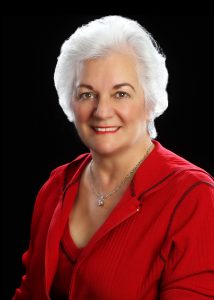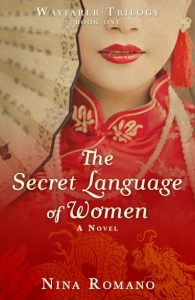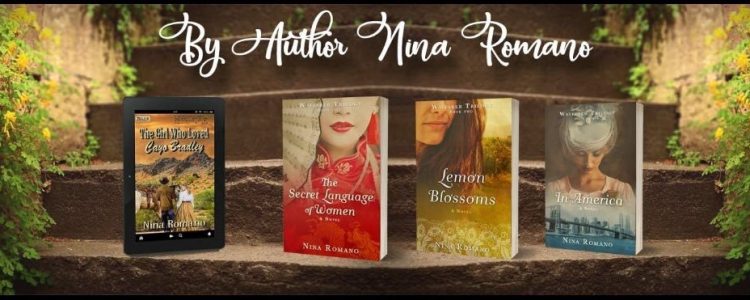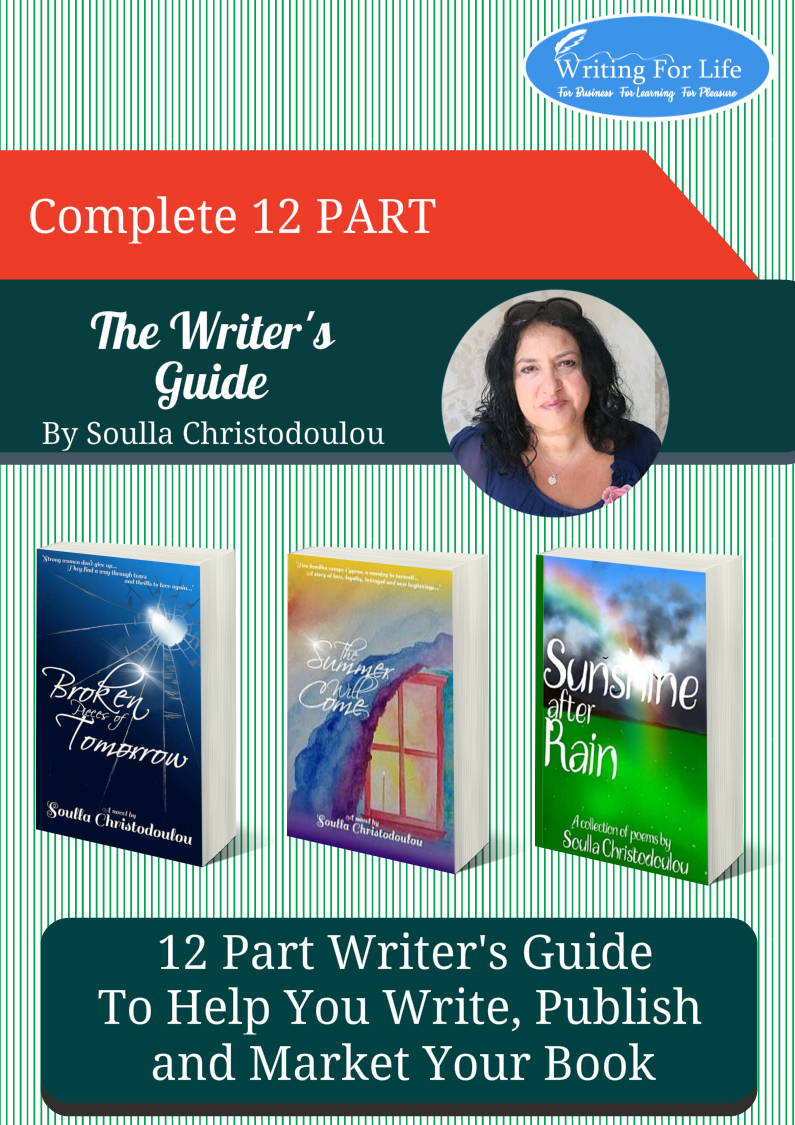Hello and welcome to A Cup of Conversation where I am joined by fabulous author Nina Romano who is a long established author with a wealth of experience behind her as well as novels. We have been Twitter friends for a a few years and her presence is always positive, supportive and insightful. In this interview with me, despite travelling to Rome for a few weeks, she has still managed to answer authentically and with a passion you can really feel. So let’s join Nina now as she talks to me in A Cup of Conversation.


1. When did you start writing creatively?
When I was living in Rome and started sending out my poetry to small magazines and literary journals. I managed a store in a hotel and when there were no tourist groups in, I’d write or read. I used to submit poems in envelopes with American stamps on them and an enclosed SASE (self-addressed stamped envelope). I’d ask a client or stewardess who was leaving for the states to mail them for me in the US. I always left the envelope open so the person could inspect it—these were the days when terrorism in Italy was ripe and the Brigate Rosse (Red Brigades) had already abducted and killed ex-Prime Minister Aldo Moro, who had been a leading statesman and prominent member of the Christian Democratic Party.
I always introduced myself with a copy of one of my poetry books—I sold a great many of my original Self-published poetry books that way. I had a wonderful printer who made all three of my books: Buttercups, The Sun Years, and Incandescent Eyes. I haven’t a clue how, but one of them, buttercups is on sale on Amazon!
2. You lived in Rome, Italy for twenty years, Nina. What a beautiful city. How has living in Italy influenced your poetry and writing?
My husband and I did a great deal of traveling with our son, family and friends while we were in Italy. I can honestly say it wasn’t just Italy that influenced my writing—especially poetry. We travelled all over Europe. We also were fortunate to own a boat and visited the Greek Islands, France, the then united Yugoslavia, and many islands: Sicily, Capri, Ischia, Sardegna (Sardinia), Corsica, and Elba. I wrote many poems on the boat about the people, food, wines, and landscapes we encountered and visited. I think I have only one short story and one novel set in Italy.
3. Looking at all your works available internationally I would say you are an accomplished poet and writer. How did your writing journey unfold?
“Unfold” is a lovely poetic word—I love language and used to keep files of words and expressions I loved in three languages: English, Italian and Spanish. I never took a poetry course in college for a BS degree or getting my first Master degree. So when we moved back from Rome, I started taking writing college courses, and the next thing you know, I’d earned a BA in English and an MFA in Creative Writing from Florida International University in Miami. I believe if memory serves me correctly that I took five poetry courses with Campbell Mc Grath. We write nothing alike—he writes pop culture and I write lyrical and narrative, however, he was an incredible, inspiring and personable professor and teacher. He could hone in on the energy of a poem and tell you exactly what was fluff and how to get rid of it, and to revise the poem with its strengths. With his critiques, I could always revise a poem rapidly.
My husband used to say, that I got my MFA in John Dufresne and Lynne Barrett. These were my two fiction professors—and both of them are phenomenal instructors. John is my advisor and mentor, and even when I’d graduated he still would read, critique and blurb my work. He is absolutely generous and accessible to a fault!
For my latest novel, The Girl Who Loved Cayo Bradley, I didn’t do any of the promotional or marketing things I did for my other books—no signings, readings, no presentation in the Miami Book Fair, etc. I decided this last book is going to have to make it on its own without any help from me. You probably want to know why? I can only say—there are too many people aspiring to be writers who should be doing something else for their life’s work. There are too many books, on too many subjects that I’m not a bit interested in. There are too many writers who have the means, the wherewithal, the energy and the time to market books. I think it’s a younger person’s game. I’ll never give up writing, but I don’t have a nut to crack, and I’m not in competition with anyone but myself.
I’d love to see this book made into a movie. It belongs on the big screen. Is it likely to happen? Do miracles happen?
4. Where do you hope your writing journey will take you next?
I’m currently writing a very challenging novel. My future hope is to finish a first draft. That’s as far as I’m looking for now.
5. Please share your favourite poem with us and tell us why you chose this one in particular.
This is a no brainer. I was a fiction major in Grad school, but I won a Graduate Poetry Prize beating out all of the poets the year that I took the prize. My winning poem was “The Crucifixion of Garlic.” Campbell challenged us to write a 100 line poem, which I did, although, I’m not sure it stayed 100 lines in revision. Use as much or as little of the poem as you’d like. Here’s the full text:
From the potted soil,
the young bulbs,
whiter than bluing white
in the last rinse water,
are yanked loose from dirt
and strung in bunches
by their own long thongs,
(like plaited palms
the Sunday before Easter
Hallelujah! Hosanna!)
twisted into meter length braids,
Magdalene’s hair, beard of Christ.
Hung Christlike, corpus dangling
on the cruciform—
stone wall of the terrace
off the kitchen that I called veranda—
where we took our summer meals,
(spaghetti agli’olio
when we were lire-less)
hoping for a breeze.
The patio’s perch,
above the oleander, lemon, and persimmon trees,
overlooked the spectacular view
of the next door apartment building’s
gravel parking lot,
into which you spit the cherry stones
of our youth, wishing next year
to see a fruit tree burst forth in bloom.
Sometimes you’d challenge me
to a contest of distance.
I always managed to lose
by forfeit through laughter,
or crying out, No fair,
because I’d swallowed a pit.
Their sheaves:
crossed fibers
of Chinese rice paper;
Egyptian papyrus before process;
tissue paper in a Christmas box;
Communion wafers;
scrolls
set to fluttering
if my shoulder brushed past
stirring them up,
setting them down
on the desks of Scribes and Pharisees
who transcribe upon them.
And among this rabbinate
rebels, but counted few
in numbers.
Afraid, they hid behind
their titles, beards
and talliths.
Their uses many: to ward off vampires, to heal warts,
to infuse into boiling water, to make tisane, to feed
to dogs to kill their fleas,
cure-all, elixir, panacea
to treat high blood pressure,
circulation, cholesterol, arthritis.
The day I nailed
a newly uncurled wreath
upon a wooden crossbar,
a murmur made me bend
near and cup my ear to hear,
Forgive her for she knows not what she does?
Yet with each sharp blow
my hammer echoed mantra
for the messianic
Superstar of herbs,
shepherd of loose cloves,
principle aromatic in the fisherman’s favorite,
gatherer of prostitutes and thieves
with knock-out breath who stroll the Via Veneto,
an ancient healing balm when placed
upon blind eyes,
leprotic sores,
possibly a raiser of the dead
if eaten in quantity
on toasted bruschetta.
I strike again, one last spike
to secure this interweave
upon its rood.
In need of cloves to season summer lamb
or rub on rabbit,
I’d twirl one lumpy golfball round
round to rent it free,
and watch pilotless parachutes
billow slowly groundward.
Snowflakes puffed out full of pride,
grown fat as pigeon flocks,
breasts held high, they hunt and peck
corn, sunflower and pumpkin seeds
tossed by hordes of tourists in Piazza Navona
or medieval Dubrovnick before the war.
The Roman ones decked out in togas,
or Essenes holding a piece of the shroud
to cover an anointed body laid to rest
in a tomb of hewn stone
somewhere in the Holy Land.
6. What are the key messages or themes you focus on in your stories and why did you choose these?
Love in all forms. Family and its significance. Diverse cultures, societies, morals and mores. I tend to choose themes that resonate with me.
7. You have been published traditionally by a number of different Publishing Presses. What has this experience taught you about yourself and your writing?
You don’t need an agent to be published. Had I been younger when my novels were first published, I might have taken the complete indie route. Publishing traditionally with small, independents certainly does not give you the clout that the big publishing houses do—the support and marketing ability. But at least I didn’t have to worry about the formatting of the text, etc. I hope to finish another novel, God-willing next year, and I still intend to submit it to a publishing press.
8. Your current Work in Progress is set in Russia. What is it about Russia which attracted you to set your story there and can you share a little of what the story is about with us?
Just like I knew I had to set a book in China, I’ve always known that I would write a novel set in Russia. I love Russian literature and I’ve travelled to Russia, just like I travelled to China. Perhaps there really exists re-incarnation, and in that case, I’d attribute it to my having lived in these cultures during other lives.
It’s a genre I have never written in before, and sorry, but that’s all I can say at the moment.
9. Congratulations on the awards your writing has been awarded over the years. What advice would you give a new writer looking to gain recognition through writing competitions?
Thank you, Soulla. My advice: do it! Send out to contests. I must say, I had a dear and wonderful writer friend who was wealthy and had the means to send individual poems out and poetry collections, and every other thing she wrote—I never did this. It costs way too much money to send out individual poems. I feel it’s far better to submit poem to little magazines and literary journals to get them published. Once a writer gets a collection together, they can possibly send it out to a contest. I didn’t do this either. My main scope and focus was to publish my poetry collections, and so I submitted to small, independent presses. No contests—no outlay of money that I felt I might not recoup. However, when it comes to novels, I’m convinced authors should take the chance if they believe in the work—even if they have to shell out the money on their own to submit to contests. I think I’ve been quoted on this before—you can’t be a winner if you don’t run in a race!
Here’s the thing—I think “how-to” books and nonfiction books: memoir, biography, etc. still sell better than fiction. But oh the great joy of inventing a fictional world!!! I’d love to write a cook book, a memoir, but when I sit down to write, my mind takes flight and off I go into a world of my own creation—so much more fun, stimulating, and exciting then penning the ingredients and measurements for eggplant parmigiana, don’t you agree?
10.What has most surprised you about the writing community?
If we’re talking about Twitter, then I’d have to say that silly or funny tweets, maybe even some inspiring ones get more retweets than serious ones about the writing process. I think it’s a huge time waste to list, mention, play naming games and shout-out about writers. Do I do it? Yes. Is it productive? No. But this seems to be the accepted way to play nice—seemingly to support other writers. And while I happily support other writers, I think there are much better ways to do it. Buy their books, become beta readers, read ARCs, give reviews, critiques, and answer tweets that sound hopeless or upset from writers receiving bad or no reviews. In other words, I like to encourage writers by other means.
I’d rather see a tweet about this evocative interview get re-tweeted. Thanks, Soulla, for this in-depth interview with serious questions! I appreciate the fact that you read my bio before designing these queries. These tweets about interviews do get retweeted, but the majority of writers skip reading the actual interview. They don’t have time to actually peruse the piece because they’re too busy naming people to #Follow instead of investing in their own careers by learning from other authors’ experiences.
Guess what, Soulla? I take the time to read not just the interviews—I read it all! I read the articles, the blog posts on writing by Jan Marshall, the reviews of books tweeted by people like Leonard Tillerman. I read the blogs, reviews, and interviews tweeted by Maryann Miler, SS Bazinet, Amy Miller, and so many others! They are incredibly insightful pieces in the world of writing and publishing on how other writers do and did it.
11. How do you connect best with your readers?
I’m not really sure that I do connect with them. I sure would like to, but I don’t know the people reading my books or writing some of those great reviews—I wish I did. If it’s someone I’ve become acquainted with on Twitter, then I can thank them in a tweet or a DM. The same with Facebook—a post or a message, however, I’m not a great Facebooker, never was! I don’t know how to use Instagram, sometimes by sheer luck I mistakenly post there or on Pinterest. I’ve had a great time answering Q and As at past book presentations. I also enjoyed speaking with customers in bookstores at “greet and meets.” Face to face communication to possibly sell books functions much better for me—I’m a people person!
12. What do you find most frustrating about the writing/publishing industry?
Marketing!
13. What three things are on your current to-do list?
Pack for Italy and a Greek Island cruise. See my son for his 40th birthday! And send out this interview to you, Soulla!
Thank you for joining us Nina and I wish you all the best as you pack for your Italian and Greek Island tour and all the best in 2020! And to my readers, thank you for reading and if you would like to link up with Nina you can do so on her links listed below.
Until next week, Happy Reading, happy Writing, happy You.
Big hug, Soulla xxx
Links:
Amazon Author: https://amzn.to/2SUamoF
The following three books are in hard cover, softcover print, and Kindle:
Amazon: The Secret Language of Women https://amzn.to/2MQZpNC
Amazon: Lemon Blossoms https://amzn.to/2TWqzYt
Amazon: In America https://amzn.to/2Hl2VzT
The following book is available in softcover print, and Kindle
Amazon: The Girl Who Loved Cayo Bradley https://amzn.to/2Mawrvv
Goodreads: https://bit.ly/2DCJ2lg
Twitter: https://twitter.com/ninsthewrite
Facebook: https://bit.ly/2BFi38l
Website: www.ninaromano.com


